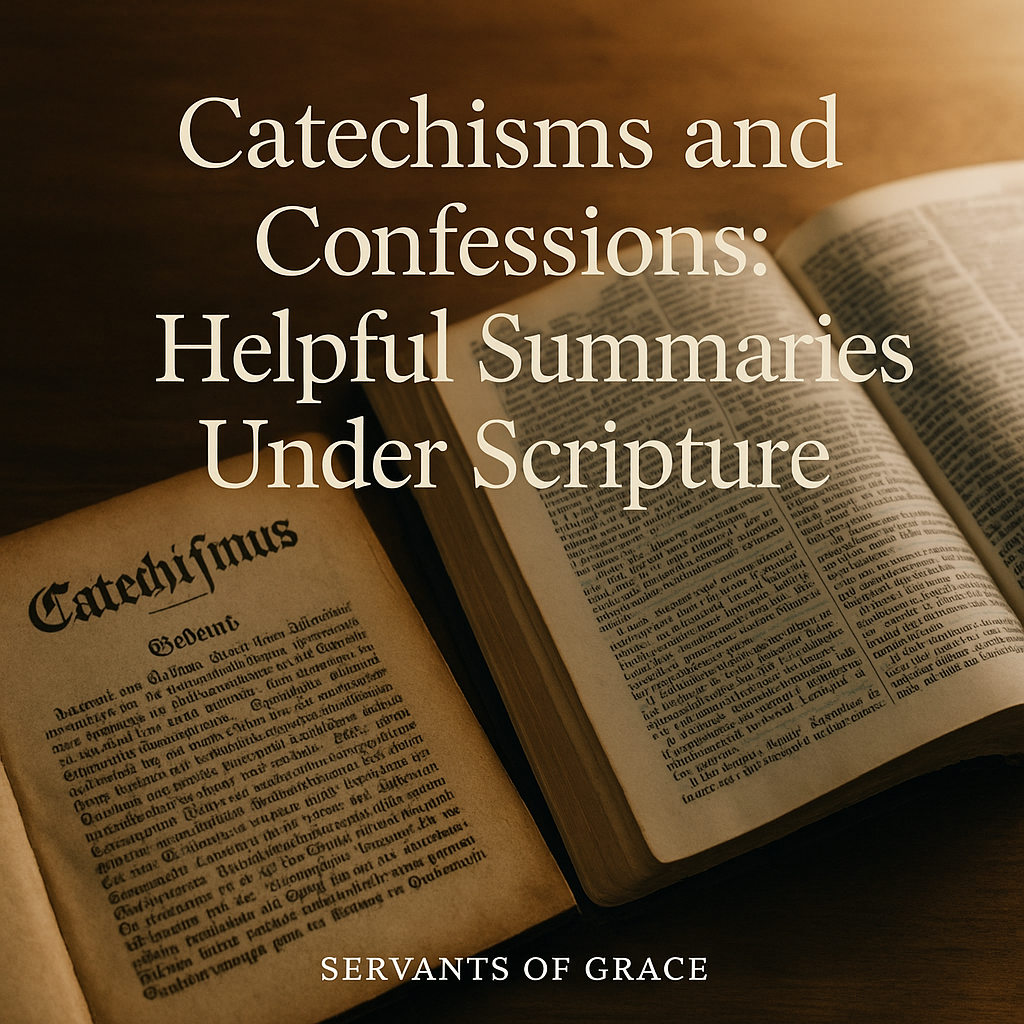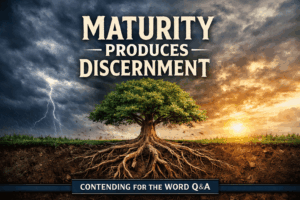⏱️ Estimated Reading Time: 3 min read
Catechisms and Confessions: Helpful Summaries Under Scripture
Written by Dave Jenkins
Summary: Historic catechisms and confessions do not replace the Bible, they summarize its teaching, guard against error, and help believers grow in sound doctrine while keeping Scripture supreme.
Introduction
In recent years, many believers have rediscovered the historic catechisms and confessions of the Church, including the Westminster Confession of Faith, the London Baptist Confession, and the Heidelberg Catechism. Yet some Christians ask, If we have the Bible, why do we need catechisms or confessions at all?
It is an important question, and the answer is that these historic summaries are not replacements for Scripture, they are tools that help us understand, teach, and apply God’s Word faithfully.
Scripture Alone, Not Scripture Isolated
The Reformers were clear that the Bible alone is our final authority for faith and practice. Sola Scriptura does not mean there are no other authorities, it means every other authority is subordinate to God’s Word.
Catechisms and confessions summarize biblical truth, guard against error, and teach sound doctrine in a clear and structured way. They help believers grow in theological depth while keeping Scripture supreme.
“Hold fast the pattern of sound words” (2 Timothy 1:13). “Contend for the faith that was once for all delivered to the saints” (Jude 3).
Why Catechisms and Confessions Matter
Catechisms are teaching tools that pass down the faith from one generation to the next. Through a question and answer format, they train the mind and the heart to think biblically and to confess truth clearly.
Confessions are public statements of faith. They unite believers around a shared understanding of what Scripture teaches. In seasons of confusion or compromise, confessions anchor the Church in sound doctrine.
Both kinds of documents summarize the Bible’s teaching so that believers can better grasp it and live by it. They function like roadmaps that point us back to Scripture, not substitutes for it.
Under the Authority of God’s Word
Every faithful catechism or confession begins with humility before Scripture. They serve under the Bible, not alongside it. As helpful as these documents are, they must always be tested by the Word of God.
The Bereans examined “the Scriptures daily to see if these things were so” (Acts 17:11). We study confessions as Bereans, using them as guides that help us understand Scripture more clearly, not as replacements for it.
The Practical Value Today
In a time when many Christians struggle with biblical literacy and doctrinal confusion, catechisms and confessions are gifts to the Church. They give structure to learning, protect against error, and provide a biblical framework for discipleship.
Families can use catechisms during devotions. Churches can use confessions for teaching, unity, and accountability. When used rightly, these resources strengthen both individuals and congregations in their love for truth.
Conclusion
So, why use catechisms and confessions if we already have the Bible? Because they help us understand the Bible better. They summarize, clarify, and apply the truths of Scripture in ways that promote sound doctrine and faithful living.
They are not infallible, they stand under the authority of God’s Word. When used wisely, they help the Church remain rooted in biblical truth, grounded in historic faith, and guarded against drift.
Catechisms and confessions are companions that point us back to Scripture. God’s Word is sufficient, clear, and trustworthy for all generations.
For more from Contending for the Word Q&A please visit our page at Servants of Grace or at our YouTube.
Dave Jenkins is happily married to his wife, Sarah, and lives in beautiful Southern Oregon. He is a writer, editor, and speaker who loves Christ, His people, the Church, and sound theology.
Dave serves as the Executive Director of Servants of Grace Ministries and the Executive Editor of Theology for Life Magazine. He is the Host and Producer of the Equipping You in Grace Podcast and a contributor to and producer of Contending for the Word.
He is the author of The Word Explored: The Problem of Biblical Illiteracy and What To Do About It (House to House, 2021), The Word Matters: Defending Biblical Authority Against the Spirit of the Age (G3 Press, 2022), and Contentment: The Journey of a Lifetime (Theology for Life, 2024).
You can connect with Dave on Facebook, X (Twitter), Instagram, YouTube, or subscribe to his newsletter.
When he is not engaged in ministry work, Dave enjoys spending time with his wife, going to movies, sharing a meal at a favorite restaurant, or playing a round of golf with friends. He is also a voracious reader, particularly of Reformed theology and the Puritans, and is often found working through a stack of new books from a wide range of Christian publishers.
Dave earned his M.A.R. and M.Div. from Liberty Baptist Theological Seminary.




